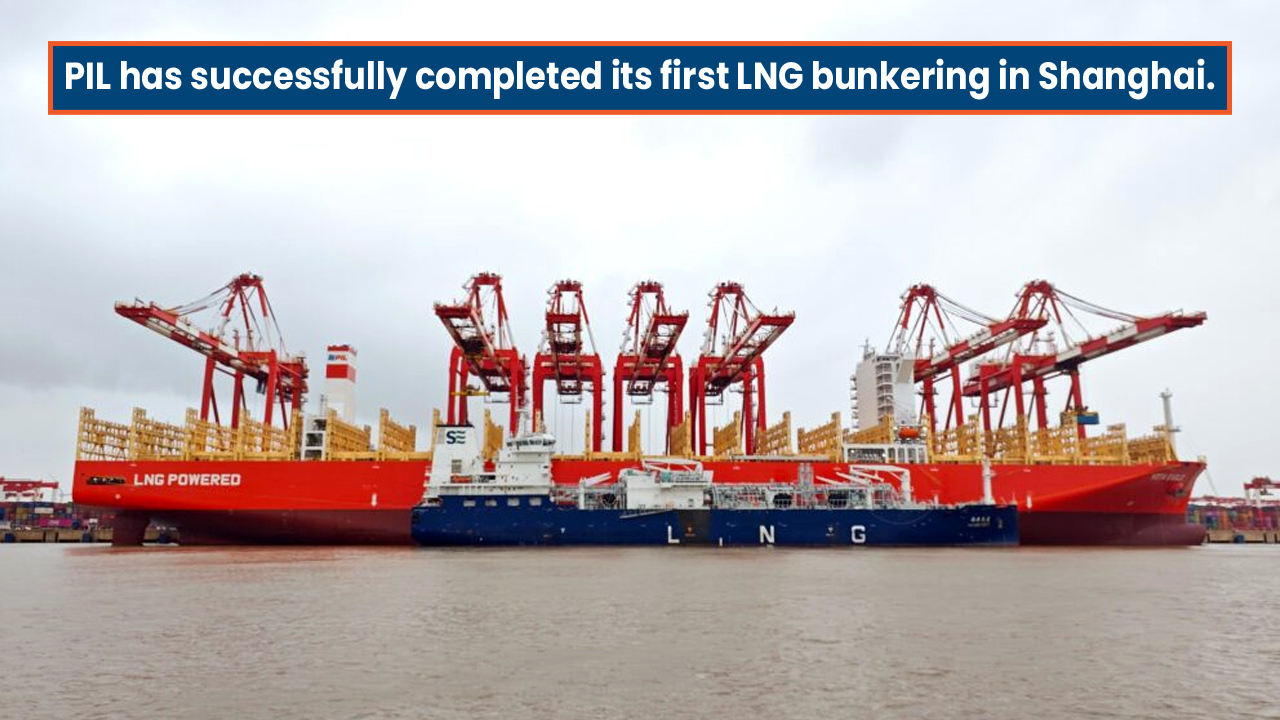PIL's first LNG bunkering in Shanghai marks a significant
milestone in the company’s commitment to embracing cleaner and more sustainable
practices in maritime shipping. This operation highlights the increasing trend
within the industry to adopt liquefied natural gas (LNG) as an alternative
fuel, which offers substantial environmental benefits compared to traditional
marine fuels like heavy fuel oil. By utilizing LNG, PIL aims to significantly
reduce its carbon footprint, lowering carbon dioxide (CO2) emissions and
virtually eliminating sulfur oxides (SOx) and particulate matter. This shift
aligns with the International Maritime Organization’s (IMO) targets for
reducing greenhouse gas emissions from ships, which seek a 50% reduction by
2050 compared to 2008 levels. The bunkering operation took place at a dedicated
LNG facility in Shanghai, part of China’s broader initiative to enhance its LNG
infrastructure. The Chinese government has been actively promoting cleaner
energy sources in shipping as part of its environmental goals, and the
establishment of such facilities is crucial for supporting the transition to
LNG as a mainstream fuel in the region. Completing this LNG bunkering demonstrates
PIL’s commitment to modernizing its fleet and operations, showcasing a
strategic investment in technology and infrastructure that enhances operational
efficiency and compliance with future regulations. As more ports worldwide
develop LNG bunkering capabilities, PIL positions itself to take advantage of
these developments, ensuring it can meet customer demands for greener shipping
solutions. This move also strengthens PIL's competitive edge in a market that
increasingly prioritizes sustainability. As customers and partners become more
conscious of the environmental impact of their supply chains, PIL’s proactive
approach to using cleaner fuels can attract new business opportunities.
Overall, PIL's successful LNG bunkering in Shanghai is not just a logistical
achievement; it symbolizes a crucial step toward greener shipping practices. By
investing in LNG technology and infrastructure, PIL contributes to a more
sustainable maritime industry while ensuring its relevance and competitiveness
in a rapidly changing market landscape. As the shipping industry continues to
evolve, PIL’s commitment to cleaner energy solutions is likely to position it
favourably for the future.


 All Categories
All Categories






